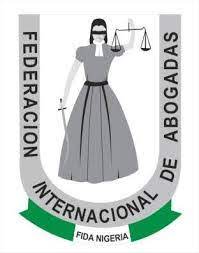The International Federation of Women Lawyers (FIDA) Nigeria, on Tuesday trained 23 field workers on monitoring, documenting and reportage of election incidences against women.
During the one-day training in Kaduna, the National Programme Manager, FIDA Nigeria, Mr. Fikih Obaro, said the field workers would represent the 23 Local Government Areas in Kaduna State.

Obaro said the essence of the training was to survey, monitor and observe the participation of women during election and how they were treated at their polling units.
According to him, the trained field workers will identify issues that trigger violence against women in election and getting solutions to avoid such ocurence.
He said that the training “is being implemented in Kwara, Plateau, Borno and Kaduna State and it is supported by the United Nations Women and the Government of Canada”.
Obaro stated that the eradication of political violence was key in advancing women political participation as it was of paramount importance to condense political violence before and after elections for women to fully participate.
According to him, evidently, women constitute a powerful electorate with millions of votes in Nigeria and are advocating for total inclusion and participation in politics.
“INEC observes that Nigerian women signaled their intention to make their voices heard in the 2019 election, accounting for about 47.14 per cent; that is more than 39 million registered voters nationwide.
“Available data for 2015 presidential election voter turnout shows that housewives were the third highest group out of the nine groups that voted,” he added.
Obaro further said the training would be stretched out to security agencies, young women in the state and election observers group who would monitor incidences of violence against women during election.
The Chairman FIDA Kaduna, Aisha Abdu, said the premise of the capacity building training was organised to advance the participation of women in the 2023 elections.
Aisha said over the years, women were sidelined during elections and in order to support women to come out and participate in politics, there was a need for them to get involved in clearing the space, particularly before, during and after elections. (NAN)


